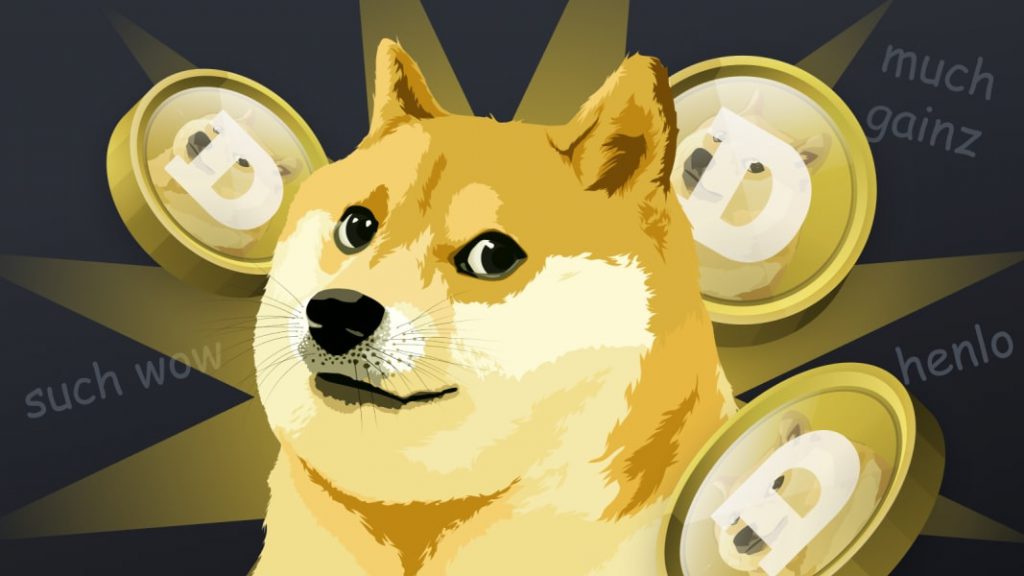
Jackson Palmer
Jackson Palmer: Dogecoin Co-Creator and Cryptocurrency Critic
Jackson Palmer, an Australian software engineer and product manager, is primarily known in the digital asset world for originating the idea for Dogecoin, the famous Memecoin he co-created with Billy Markus in 2013. Born from an internet meme and intended as satire, Dogecoin's unexpected trajectory led Palmer to distance himself from the project early on. He subsequently became a prominent and outspoken critic of the broader Cryptocurrency and Blockchain industry, offering a unique perspective from someone who was present at the creation of a cultural phenomenon.
The Origin of Dogecoin (2013)
In late 2013, during a period of intense speculation surrounding Bitcoin and numerous emerging Altcoins, Jackson Palmer, then working in marketing for Adobe Systems in Sydney, jokingly tweeted about creating a new cryptocurrency called "Dogecoin." The name and concept were inspired by the popular "Doge" internet meme featuring a Shiba Inu dog. Seeing positive feedback to the joke, Palmer purchased the domain dogecoin.com.
Shortly after, Billy Markus, a software engineer at IBM, saw Palmer's website and contacted him with the technical expertise to turn the parody into a functioning cryptocurrency. Markus forked the codebase of Luckycoin (which itself was derived from Litecoin) and adapted it to create Dogecoin. Litecoin's Scrypt algorithm and Proof-of-Work consensus mechanism formed Dogecoin's technical foundation, allowing for a relatively quick development process.
Dogecoin officially launched on December 6, 2013. Its lighthearted branding, abundant supply, and community focus on using the coin for small online tips and charitable causes fueled rapid, viral adoption, particularly on platforms like Reddit, exceeding its creators' initial satirical intentions.

Departure and Disillusionment (2015)
Despite Dogecoin's growing recognition, Jackson Palmer, along with Billy Markus, stepped away from active involvement around 2015. Palmer grew increasingly uncomfortable with the direction the project and the wider crypto community were heading. His stated reasons for leaving included:
Despite Dogecoin's growing recognition, Jackson Palmer, along with Billy Markus, stepped away from active involvement around 2015. Palmer grew increasingly uncomfortable with the direction the project and the wider crypto community were heading. His stated reasons for leaving included:
- Shift towards Speculation: Discomfort with the community's focus moving away from the original intent of fun, learning, and tipping towards intense price speculation and "get rich quick" mentalities.
- Toxic Environment: Concerns about scams, opportunistic behavior targeting the community (such as the collapse of the Moolah Dogecoin exchange), and sometimes hostile interactions within the space.
- Personal Disillusionment: A growing skepticism about the value proposition and culture of the cryptocurrency industry as a whole.
Reinforcing his detachment from the project's potential financial gains, Palmer has stated he sold or gave away his Dogecoin holdings early on for a negligible amount, famously equating it to enough to buy a used Honda Civic well before Dogecoin reached multi-billion dollar market capitalizations.
Palmer's Vocal Criticism of Cryptocurrency
After leaving the project, Jackson Palmer became one of the most prominent critics of the cryptocurrency industry, offering insights often sharpened by his early involvement. He consistently voiced his skepticism, primarily through social media (particularly Twitter/X, though he has since reduced his public online presence) and occasional interviews or talks. His core criticisms include:
- Hyper-Capitalistic Nature: He argues that cryptocurrency technology primarily serves to amplify wealth for early adopters and insiders, functioning as a tool for speculation, tax avoidance, and regulatory arbitrage rather than genuine decentralization or societal benefit. His widely cited 2021 tweet stated:
"After years of studying it, I believe that cryptocurrency is an inherently right-wing, hyper-capitalistic technology built primarily to amplify the wealth of its proponents through a combination of tax avoidance, diminished regulatory oversight and artificially enforced scarcity.”
- Centralization of Power: Contends that despite claims of decentralization, the industry is largely controlled by a "powerful cartel of wealthy figures" and established financial institutions.
- Facilitation of Scams & Fraud: Highlights the prevalence of scams, market manipulation, and projects lacking real value, arguing the ecosystem often preys on financially vulnerable or naive individuals.
- Lack of Accountability: Criticizes the "your fault" culture surrounding losses from scams or user error within the space.
Life After Dogecoin
Following his departure from the Dogecoin project and the crypto scene, Palmer largely returned to his career in technology, holding roles in product management and growth, including continuing at Adobe Systems for several years. He has generally maintained a private profile, rarely commenting publicly on Dogecoin's subsequent market performance or the high-profile figures, like Elon Musk, who later became associated with promoting it. He has expressed a preference for focusing on technology with clearer positive societal impacts.
Legacy: Accidental Founder, Intentional Critic
Jackson Palmer holds a unique dual legacy within the cryptocurrency narrative. He is undeniably the originator of the Dogecoin idea and brand – a memecoin conceived as satire that unexpectedly captured the internet's imagination and became a long-standing, culturally significant digital asset. Simultaneously, he stands as one of the industry's most notable internal critics. Having experienced the early crypto community firsthand, his subsequent disillusionment and consistent, sharp critiques offer a valuable counterpoint to prevailing industry narratives, fueling important ongoing discussions about the ethics, sustainability, and true value proposition of cryptocurrency and blockchain technology.
Conclusion
Jackson Palmer's journey represents a fascinating and cautionary tale within the cryptocurrency saga. As the marketing mind who sparked the idea for Dogecoin, he co-created a global phenomenon born from an internet meme. His decision to walk away early due to concerns about the project's direction and the broader industry's culture, followed by his evolution into a vocal critic, provides a unique and often sobering perspective. While Dogecoin continues its independent existence, Palmer's story underscores the unpredictable nature of digital trends and serves as a prominent voice urging critical examination of the promises and perils of the cryptocurrency world.

